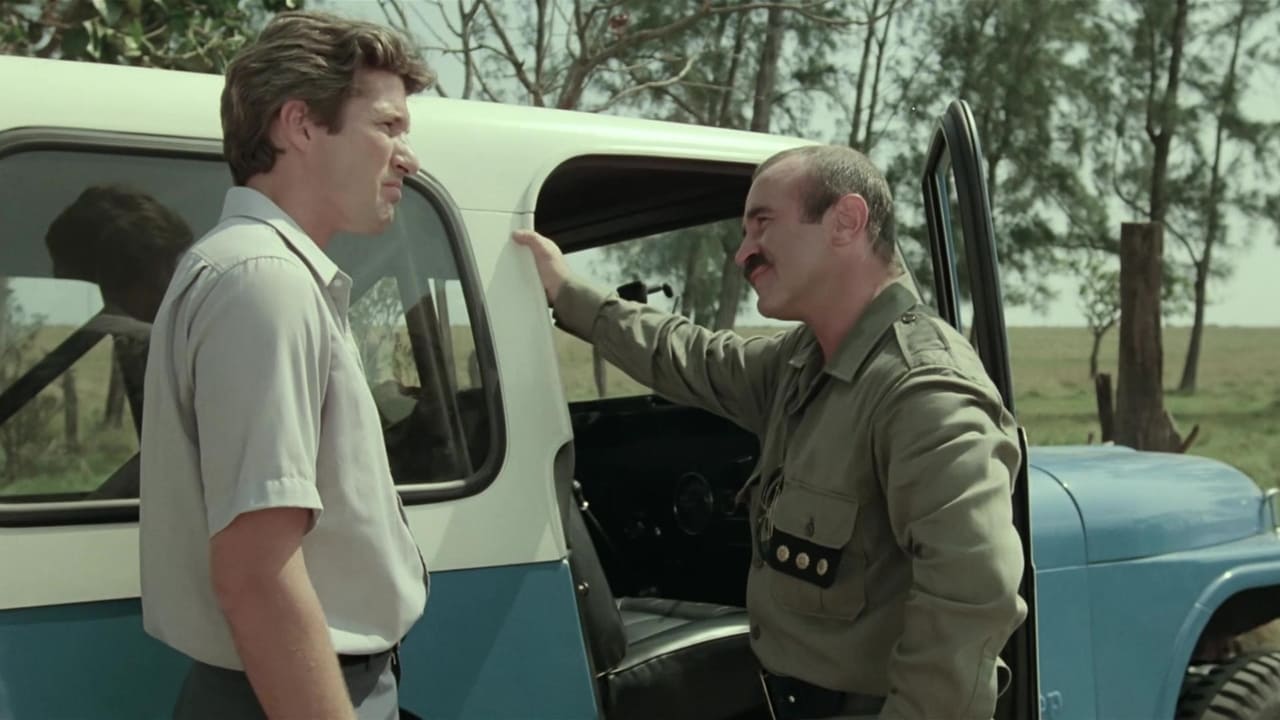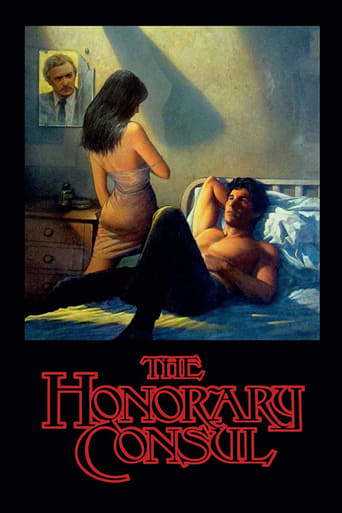

It was difficult to watch this film because of the miscasting of Richard Gere who seems at last partially anesthesthetized through the entire movie. There is not one bit of passion in his manner or his speech and, whenever he is on the screen, there is a hole through which all tension drains. Bob Hoskins is not a convincing Latin at all, neither in accent nor in manner. Better casting in these two parts would have improved this film immeasurably.An interesting, semi-error shows many of the main characters sweating through their shirts. In tropic and sub-tropic regions, locals have heat adapted well enough so that they sweat almost unnoticeably in normal conditions and thus can appear crisp and unruffled in temperatures where those of us from more temperate climates sweat like water buffalo.
... View MoreIntriguing music and lighting choices with some good camera movement and angles keep this film relatively interesting on an audio and visual level. However, they do not compensate for the film having quite a limited story of just a lightly developed romance during political unrest. There are political themes and morality issues in it, however they are not too well explained. It is also far too slowly paced, dragging between the story action. It is not a bad film though, and it is arguably interesting to watch however it misses the mark for greatness. Despite Caine and Hoskins receiving BAFTA nominations for their roles, it is Gere who delivers the most effectively.
... View MoreCompetent adaptation of a typical Graham Greene story, a tale of moral dilemma, forgiveness and redemption in a quasi-fascist South America. Direction and acting are ordinary, although Michael Caine and Richard Gere are at least well cast; Bob Hoskins (an Argentinian policeman!) less so. Not badly done, but slightly detached; Greene packs a bigger punch on the page.
... View MoreThis is a mildly interesting picture for viewers who like a hint of subtlety to spice their viewing experience. The problem is that this film also contains quite a lot of uneven action and performances. The action is based upon a book by Graham Greene, a morality tale in which Greene shows how a seemingly mild injustice leads to catastrophic consequences for an apparently innocent man. The movie details the relationship between Dr. Plarr and the British "Honorary Consul" and the consul's wife. The movie, true to the original author's intent, makes this relationship central to the plot development. Greene wants to show how this relationship reveals a tragic flaw in his protagonist. On this level the movie succeeds, but there are too many loose ends in the plot and some lackluster performances. In the final analysis, though it starts nobly, the movie does not accomplish what it set out to do: i.e., bring a faithful adap- tation of Graham Greene to the big screen. It does not do justice to the subtle, thoughtful perspective of Greene's novel.Dr. Plarr, played by Richard Gere, certainly is the amoral character Greene intended him to be. But this role, as directed in this movie, appears to be a vehicle for Richard Gere. It is drawn in the mold of movies that Gere had worked on at that time. These include movies such as "American Gigolo" and "Breathless." To turn the character of Dr. Plarr into a showcase for Richard Gere represents a totally inappropriate intrusion of the director into the story's subject matter.To make matters worse, Gere plays his role mechanically, without passion, almost as though he were reading his lines directly from the script or sleepwalking through them. He is emotionally uninvolved in his character.The revolutionaries in the picture are similarly unengaging characters. One has a hard time seeing how anyone could support their cause. This is chiefly because the movie does not do a satisfactory job of explaining who or what the group is fighting against. As a result, it is not clear with any accuracy just what the group is fighting for. The movie resorts to cliches here. We are supposed to believe that a Latin American dictator has been committing atrocities, but what effective recourse the revolutionaries have against him is never fully explained. The action that follows becomes muddled and the the motivations of the characters confused.The one character who is neither confused nor mechanical is the honorary consul, played by Michael Caine in an outstanding per- formance. Charley Fortnum first comes across as a boozing has-been, but in the end, he is the voice of reason and humanity in the face of an insane, inhuman mess. His is also the voice of mercy in the picture."Beyond the Limit" may not be as thoughtfully developed as it should be, but it is interesting to see the film's producers try to convey the important moral message of the original novel. I give it two stars.
... View More